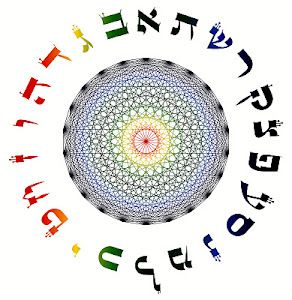ARIEL BEN AVRAHAM – ECCLESIASTES: THE ILLUSION OF VANITY AND THE REALITY OF LOVE (XXVI)
“There is no man that has power over the wind to retain the wind, neither has the power over the day of [his] death; and there is no discharge in war, neither shall wickedness deliver him that is given to it. All this have I seen, even applied my heart to whatever the work that is done under the sun; what time one man had power over another to his hurt.” ( Ecclesiastes 8:8-9)
These verses come to expand the reasons for not to entertain fantasies and illusions that we are not fully aware of their outcome, once we turn them into something real. Thus we understand that they are similar to believe that we are able to handle evil or to control it, as we also would like to do with death.
Once we engage ourselves to negative attachments, obsessions or addictions, we are bound to them with no easy relief or deliverance.
There is nothing to profit from this predicament as well as from anything in the realm of ego’s fantasies and illusions, even more so if we inflict wickedness to one another.
“And so I saw the wicked buried, and they entered into their [final] rest; and they that had done right went away from the holy place, and were forgotten in the city. This also is vanity. Because sentence against an evil work is not executed speedily, therefore the heart of the sons of men is fully set in them to do evil.”
(8:10-11)
Both the just and the wicked end up in graves, either sooner or later. Here the just are warned not to separate from their permanent awareness of goodness as the holy place where they belong. Otherwise, they will be forgotten as the wicked in the vanities that they choose to live, for in them there is no judgment or justice.
If we allow negative traits and trends as the ways and means of our consciousness, we confirm that wickedness is sheltered in our hearts.
“Because a sinner does evil a hundred times and [yet he] prolongs his days. Although yet I know that it shall be well with them that revere [lit. fear] God, that fear before Him. But it shall not be well with the wicked, neither shall he prolong his days which are as a shadow because he fears not before God.” (8:12-13)
King Solomon invites us again to become aware of the vanity, futility and frustration of our negative choices, either these shorten or prolong our days, for in them life becomes meaningless.
Thus we translate the reverence (“fear”) of God as the appreciation and devotion to the goodness by which our steps in the path of life are shinned.
“There is a vanity which is done upon the earth, that there are righteous men to whom it happens according to the work of the wicked; again, there are wicked men to whom it happens according to the work of the righteous. I said that this also is vanity.” (8:14)
This verse reiterates that as long as we engage in the vanity and futility of ego’s fantasies and illusions, there is no difference is we are just or wicked.
Kochav Yaakov, Shomron (Samaria), Israel Ariel Ben Avraham (f. Zapata) was born in Cartagena, Colombia in 1958. After studying Cultural Anthropology in Bogotá moved to Chicago in 1984 where he worked as a television writer, reporter and producer for 20 years. In the 1990’s he produced video documentaries related to art, music, history and culture such as “Latin American Trails: Guatemala” distributed by Facets.org. Most of his life he studied ancient spiritual traditions and mysticism of major religions, understanding the mystic experience as the individual means to connect with the Creator of all. Since 2004 he studies and writes about Jewish mysticism and spirituality mainly derived from the Chassidic tradition, and the practical philosophy of the teachings of Jewish mystic sages. The book “God’s Love” is the compilation of many years studying and learning Jewish mysticism. The messages of his book are part of the content, exercises and processes of a series of seminars, lectures and retreats that he facilitates in Israel.










